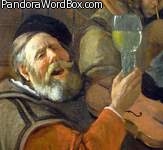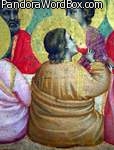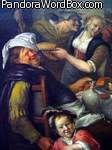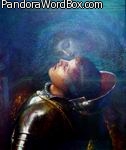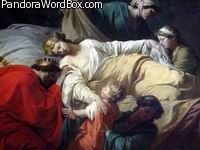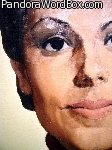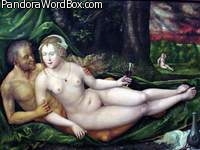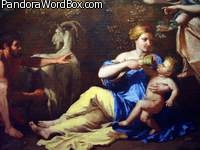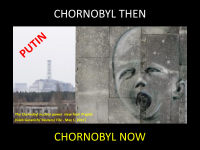|
× UKRAINIAN CHILDREN WITH DISABILITIES HAVE SPECIAL NEEDS |
ALCOHOL LIBATION LIBERATE LIBERTINE ARDOR
Spirit Aspire Inspire Expire Vital AquaVit Aguardiente
Methanol Ethanol Bromides Bromus Bacchus Dionysus Asco
Bebe Baby Beber Imbibe Beer Babble
ALCOHOL, AQUA VITA, AGUARDIENTE, or HORILKA link to "burning water" or "Vodka" evoking ideas that overlap with those about the human SPIRIT. In another sense, chemists regard SPIRITS as substances that rapidly disappear by evaporation.
Many mythologies describe spiritual ceremonies where burning incense, lighting candles, incinerating exPIREd relatives on a PYRE represent attempts to reach the ETHER and the eternal. In Ukrainian, HORILKA, HORIT, and HORE mean VODKA, FIRE, and SORROW. Furthermore, the central role of alcohol is underscored by such an adage as "to drown our sorrows" or by LIBATE, which stresses that alcohol can offer a temporary LIBERTY or relief from the reality of matter.
SPIRT in Ukrainian and SPIRITUS in Latin underscore that SPIRITS or alcoholic beverages impact the brain, SPIRIT, or SOUL, or put in another way, that alcohol has a rapid effect on the affect. Poets could assert that in small doses, alcohol can insPIRE and that alcoholic LIBATIONS tend to temporarily LIBERATE a person from bothersome inhibitions. Physicians can assert that high doses of alcohol inhibit respiration. Humans who imbibe ETHANOL exPIRE or exHALE a typical odor into the ETHER or the atmosphere. Overdoses of alcohol can also depress resPIRAtion to the extent that the victim will fail to inSPIRE and thus exPIRE.
The ancients coined the root METHY to refer to the characteristic stench of the gas exhaled by the inebriated. METHY points to MEDHY, MED and MEDVID which in Sanskrit and Ukrainian are for MEAD, HONEY, and BEAR. In the same spirit, the ancients called aMETHYst the stone they believed to be an antidote to ebriety.
Alcohol has a long standing history in the SPIRITual living of many people. One notion is that religion and alcohol offer an alternative to the harshness of materialism or realism. In a sense, alcohol is an anesthetic, albeit a rather poor one.
The roots METH-anol, ETH-anol, PROP-anol, OCTA-nol, and so on, describe the number of carbons in a molecule of alcohol as being one, two, three, eight and so on. These roots appear in words such as methane, methylene or ethylene.
METHANOL or wood alcohol is toxic because when metabolized by the liver, it forms formaldehyde, which is a strong fixative that kills liver cells. ETHANOL is also rapidly metabolized by the liver.
In mythology, wines, beer, and mead fall under the rule of Bacchus or BROMIUS for STENCH. Centuries later, medicine introduced sedative salts named BROMIDES which, like alcohol, cause a malodorous breath or halitosis. ASCO is another ancient term linking STENCH with wine. In Latin, asco is for wine skins or bags and in Spanish it denotes revulsion.
In parallel with the introduction of affordable strong alcoholic beverages, a new international florid terminology helped promote mercenary interests. Lively monikers include AQUAVIT or "vital water"; VODKA from Slavic VODA for "water"; HORILKA in Ukrainian or AGUARDIENTE for "fire or burning water" in Spanish; WHISKey or WHISKy from WHISK; BOURBON referring to Spain and the Louisiana purchase; GRAPA related to GRAPes GRIP, GRASP, or GRAPple; GROG perhaps pointing to the rum given to GROGgy sailors. There are also SPIRITS that serve as vehicles for manufacturing drugs. In France, ABSINTHE for Artemisia or Artemis is a popular liquor containing an extract from "wormwood" or Chornobyl in Ukrainian. Artemisia, as Goddess of darkness, does remind absinthe drinkers that their vision may be "darkened" to the extent of blindness. In Mexico, the popular drink PULQUE contains alkaloids that induce delusions. Pulque is made from the juices of the plant AGAVE, named after a mother who, while intoxicated, murdered her son Pentheus. The story, as given by Ovid and Euripides, is an immortal classic tragedy demonstrating the unintended consequences of drunkenness. Currently, several religious groups continue to demand the right to consume such mind altering drugs during their religious ceremonies in the belief that the induced delusions are divine in nature.
During the 19th century, it was discovered that when ETHANOL was mixed with sulfuric acid, it produced an explosive gas with anesthetic properties. Named ETHER, this gas ushered the era of painless surgery.
To close, humans are breathing ANIMAls who often have a kind ANIMA, ALMA, or SOUL inclined to give ALMS to the ALIeanated. As given in Ukrainian, the living DYSHAT or respire and have a DUSHA or ALMA. In Latin and Spanish, ALMA and ALMAcen point to nourishment or nurturing. Alcoholics often are estranged or ALIENATED and seek to escape from sobriety into EBRIETY. In Spanish, ALIENTO is a sort of ALM which helps another keep breathing or be "enlivened". Alcoholics need help to carve their breathing while SOBER. Those who give ALIENTO help alcoholics find "new breathing room" and avoid ALIENATION.
20220120 ww





